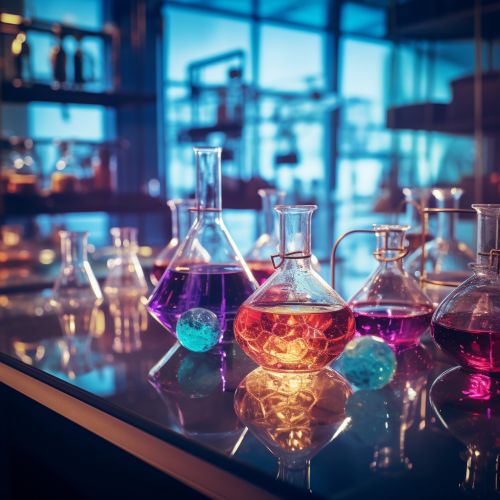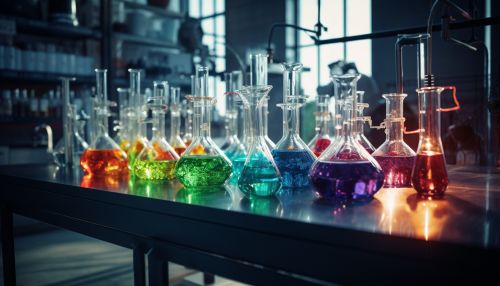Organic Chemistry
Introduction
Organic chemistry is a branch of chemistry that studies the structure, properties, composition, reactions, and synthesis of organic compounds, which contain carbon atoms. Organic compounds are uniquely found in living things, but they are also synthesized in the laboratory.


History
The term "organic" was coined because initially it was thought that these compounds could only be synthesized in living organisms through vital forces that could not be replicated in the laboratory. The vitalism theory was disproved in 1828 when Friedrich Wöhler synthesized urea, an organic compound, from inorganic starting materials, marking the beginning of modern organic chemistry.
Structure of Organic Compounds
Organic compounds primarily consist of carbon and hydrogen atoms, forming what is known as a hydrocarbon. Carbon atoms have a unique ability to form stable bonds with many elements, including themselves, which allows them to form a variety of complex and diverse structures. These include chains, rings, spheres, and more complex structures.
Functional Groups
Functional groups are specific groupings of atoms within molecules that have their own characteristic properties, regardless of the other atoms present in the molecule. Common functional groups include alcohols, esters, ethers, aldehydes, ketones, carboxylic acids, and amines.
Organic Reactions
Organic reactions are chemical reactions involving organic compounds. The basic organic chemistry reaction types are addition reactions, elimination reactions, substitution reactions, pericyclic reactions, rearrangement reactions, photochemical reactions and redox reactions.
Organic Synthesis
Organic synthesis is a special branch of chemical synthesis dealing with the construction of organic compounds via organic reactions. Organic molecules can often contain a higher level of complexity compared to purely inorganic compounds, so the synthesis of organic compounds has developed into one of the most important branches of organic chemistry.
Importance of Organic Chemistry
Organic chemistry is crucial in the development of pharmaceuticals, dyes, detergents, and polymers, including plastics and rubbers. In biological systems, organic compounds often contain nitrogen, sulfur, phosphorus, and other elements in addition to carbon and hydrogen.
